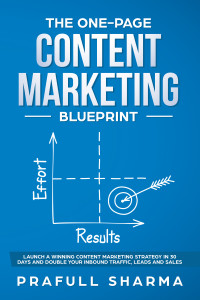Is SEO Dead or Is It Just Changing?
SEO, the art of improving website visibility on search engines, has been key for businesses, marketers, and creators. But as sites like Google shift and evolve, the ways to rank well change a lot, leaving many to ask: “Is SEO dead?“
It’s no shock since traditional methods like packing in keywords or fake links now do more harm than help. So, does this mean SEO is dead? Truth is, SEO is not gone; it’s just evolving with all the new tools, habits, and rules.
To stay ahead online, it’s key to know how SEO keeps shifting. By working along these changes, companies can keep gaining free site traffic. Let’s explore the factors that have sparked this debate and uncover why SEO is very much alive — just in a different form.
SEO: From Keywords to User Intent
In the early days of the internet, SEO was all about using lots of the same words. People would pack their pages with the same phrases, even if it didn’t make sense. If you searched for “best pizza in New York,” a site with that phrase written over and over would show up first.
But search tools are smarter now. Google’s system cares more about what people want than how often a word is used. What does this mean? Search engines try to understand what the person is looking for. Are they after facts, a product, or how to get somewhere? Now, pages that help the most with those needs rank higher than pages full of repeated words.
For example, if someone types “best pizza in New York,” they might want a list of pizza spots, user reviews, or a map with directions. Google now tries to show the best and most helpful result first. This change proves SEO isn’t gone — it’s simply becoming more sophisticated and user-centric.
Voice Search and AI: New Opportunities for SEO
The rise of voice helpers like Siri, Alexa, and Google Assistant has changed SEO. Voice search shifts how people use search engines. Instead of typing short, broken keywords, people now ask full, clear questions. For example:
- Typed search: “Weather New York tomorrow”
- Voice search: “What will the weather be like in New York tomorrow?”
As voice search gets more popular, SEO needs to adjust. To optimize for voice, focus on longer, voice search keywords and make content sound natural when spoken. Questions, answers, and chat-like content work well in this area.
Also, artificial intelligence is changing SEO with tools like Google’s RankBrain. AI helps search engines understand users’ needs better and find the best match for their searches. It rewards strong, useful content and punishes old tricks. Those who use these tools can stay ahead and keep their content seen.
The Rise of Content Quality Over Quantity
The phrase ‘content is king’ has been said many times, but in today’s SEO world, quality beats quantity. The days of writing lots of short, weak posts to rank higher are over. Now, Google’s system favors content that helps readers. So, what makes good content?
- It gives answers: Content should inform and meet what the user is looking for.
- It grabs attention: Good content uses images, headings, and a clear layout so it’s easy to follow.
- It is trustworthy: Solid content with facts, expert input, and links to sources do better.
Google now checks how long people stay on a page, how fast they leave, and how often they click links. If users like the content, they stay longer and engage more. These actions tell Google, “This content is good,” which boosts rankings.
This new focus on quality shows how SEO is shifting. It’s not about fooling search engines anymore but helping real people. Sites that put users first will lead in the SEO race.
The Role of Tech SEO in Modern Strategies
Content matters, but tech SEO is key now more than ever. Search engines check a site’s tech parts to see if it’s easy to use and useful. Tech SEO makes sure search engines can scan, list, and rank your content right.
These are the most important tech SEO points:
- Site speed: Fast sites rank better since they are easier to use.
- Mobile-friendly: With most web use on phones, Google favors mobile-ready sites.
- Secure (HTTPS): Secure sites are trusted by users and search engines alike.
- Simple layout: Clear paths and links help users and search engines find stuff quickly.
Firms that skip these tech steps may fall behind. Great content won’t rank if tech flaws block it. So, good SEO mixes content plans with tech fixes for top results.
SEO in the Time of Social Media and Video
Sites like YouTube, TikTok, and Instagram have changed how people get content. Nowadays, many people turn to social media instead of search engines to find answers, ideas, or fun in general. But is this bad for SEO?
Not really. It’s more of a chance. Social media platforms and SEO can do wonders together. Here’s how:
- Social media posts can bring links to your site, boosting SEO rankings.
- Videos made for YouTube can show up in Google searches.
- Popular social posts can lead people to your site, showing search engines it’s useful.
Videos are a strong tool for SEO. Google often shows videos in search results. They also keep people on a page longer. If businesses use video in their plans, they can grow their reach on both social media and search engines.
Wrap-Up: Are We in for SEO Evolution?
So, are you still asking if SEO is dead? Short answer: no way. SEO isn’t going anywhere, it’s simply shedding its old skin to reveal something much better. As search engines evolve, businesses and marketers must adapt and welcome change with open arms. Today’s SEO is about user needs, good content, voice search, tech fixes, and social media.
Instead of old tricks like stuffing lots of keywords, brands now need to focus on their users, write helpful content, and use new techs like AI and voice tools. SEO is now a lively and user-first field, but its main goal stays the same: helping people find what they want.
In fact, the ongoing shifts in SEO bring fun chances for those willing to try new things. Anyone who adjusts to this fresh world will see that SEO is far from dead — it’s alive and well, full of growth opportunities in today’s fierce competition.
Share This Story
2 Comments
Leave A Comment
Get the latest growth ideas, strategies, and best practices delivered to your inbox.
Quick read that helps 7000+ subscribers.










What an interesting insights. SEO definitely isn’t dead, it’s just evolving. A good reminder that staying updated with algorithm changes is key to long-term visibility. Nice!
This article provides a comprehensive overview of the evolving landscape of SEO. At DigiKwic, we’ve observed firsthand how the shift from keyword-centric strategies to user-focused content has transformed our approach to digital marketing. Embracing advancements like voice search optimization and AI-driven analytics has been pivotal in enhancing our clients’ online visibility. Your insights into the importance of technical SEO and quality content resonate deeply with our experiences. Thank you for shedding light on these critical aspects of modern SEO